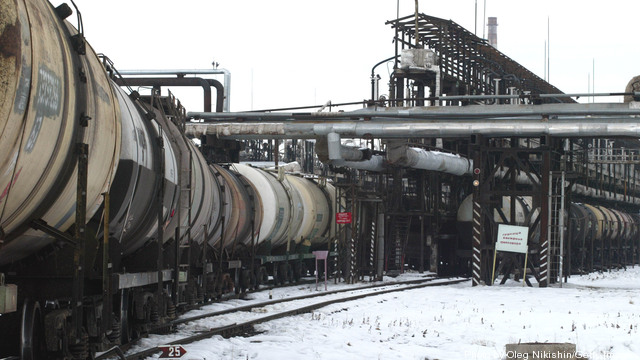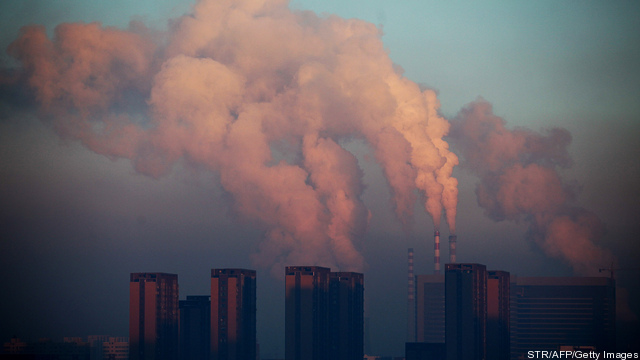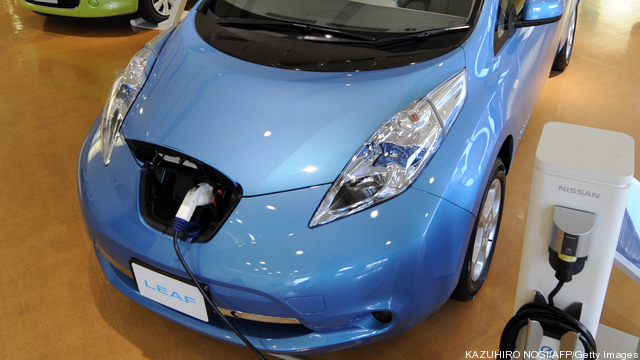The fatal Quebec oil train disaster looks likely to touch off yet another debate affecting the future of the Keystone XL pipeline – whether pipelines or rail are a safer way to transport oil. “People think rail is costless until something like this happens.” [Bloomberg] France’s Total and its Chief Executive Christophe de Margerie were… Keep reading →
Total
Sign up and get Breaking Energy news in your inbox.
We will never sell or share your information without your consent. See our privacy policy.Energy News Roundup: China’s Environmental Regulations, Geopolitical Risk Premium, and Finally, Angola LNG
By Conway IrwinChina has enacted new measures to improve air quality, including a mandate that heavy polluters, such as coal-fired power plants, reduce emissions by 30% per unit of economic output by the end of 2017, and publicly release environmental information. Certainly seems like a step in the right direction for a country whose capital city’s pollution… Keep reading →
Energy News Roundup: EV Charging Stations Take Over, Total CEO May Face Trial, South Africa Beats US on Solar Financing
By Conway IrwinElectric car manufacturer Tesla has announced plans to dramatically expand its electric vehicle charging network – the company claims that within six months, it will connect most major metropolitan areas in the US and southern Canada. [Forbes] In somewhat related but perhaps slightly less dramatic news, the US Navy has unveiled its first solar-powered EV… Keep reading →
One of the most frightening scenes from the financial crisis unfolded in the staid environs of the Commodity Futures Trading Commission’s Washington offices, where the regulators charged with monitoring derivatives trade gathered together the heads of commodity trading from recently shamed Wall Street giants like Goldman Sachs and Morgan Stanley. The CFTC was a comparatively… Keep reading →
The large gap between domestic US natural gas prices and LNG prices in European and Asian markets that underlies the rationale for US LNG exports has raised the question: when US gas is sold abroad, who captures that spread? The difference between low prices paid for gas produced in the US – currently trading at… Keep reading →

The Shams 1 concentrated solar power plant was inaugurated earlier this week in the Western Region of Abu Dhabi, UAE. At 100 megawatts, Shams 1 is currently the largest operational CSP plant in the world. The project is noteworthy because it is a major step forward for renewable energy technology, and CSP in particular, but also because it was developed in an Opec country. Masdar, Abu Dhabi’s renewable energy company, partnered with French oil major Total and Spain’s energy infrastructure company Abengoa. Breaking Energy attended the proceedings, along with several other international journalists, as Masdar’s guest. Masdar is a subsidiary of Mubadala, a UAE government-owned investment vehicle.
“With the addition of Shams 1, Masdar’s renewable energy portfolio accounts for almost 68 percent of the Gulf’s renewable energy capacity and nearly 10 percent of the world’s installed CSP capacity”, according to the company. Keep reading →

The long-running dispute between Iraq’s central government in Baghdad and Kurdistan Regional Government leaders in Erbil entered a new phase when the Iraqi Parliament last week passed a 2013 budget that allocated a fraction of the money requested by the KRG. A bulk of this funding is used to pay oil companies operating in the semi-autonomous region.
“In a blatant stiff-arm to the Kurds, the budget allocates just $646 million to cost recovery for Kurdistan Regional Government oil contractors — a figure that covers only around two months’ worth of the crude that Erbil was slated to provide this year,” Michael Knights said in a Policy Alert from the Washington Institute for Near East Policy, a think tank. The KRG reportedly requested $3.5 billion. Keep Reading →

It appears increasingly likely that Venezuelan President Hugo Chavez will not return to power following his latest cancer treatment in December and analysts are considering the implications of a post-Chavez regime for one of the largest crude oil producers in the world.
Venezuela holds some of the world’s largest oil reserves and is the second largest Opec oil exporter to the US. Oil revenue accounts for a bulk of the government’s income and has largely been used to fund Chavez’s wide-ranging social programs. But the country’s oil industry – which is essentially state-owned company PDVSA – has been struggling with declining production rates at mature fields, along with other problems. Keep reading →

Energy venture capital is a challenging business in the best of times, but greater competition from large non-traditional players and lingering economic weakness in many of the world’s largest economies mean that, more than ever, finding and doing successful deals requires a disciplined, yet open minded approach.
The entrance of large companies into the energy venture capital space, the US elections’ impact on investment cycles, identifying opportunities and dominant sector trends were just a few of the topics Breaking Energy recently discussed with Dr. Wal Van Lierop, CEO of Chrysalix Energy Venture Capital. Keep reading →






